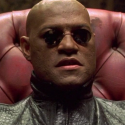|
Van Dine posted:Thank you for mentioning that! This book is really delightful, and hearing that there are more of them is excellent news. I have to wonder how, for example, Julia would handle investigating a crime? Assuming that Julia does not find herself in prison forevermore at the end of this book. Given her immense talent for keeping up with her correspondence, I think Julia would be pretty good at solving a mystery from her prison cell. Anyway! You may now read to the end of Chapter Thirteen. All previous discussion may be despoilered.
|
|
|
|

|
| # ? May 6, 2024 12:01 |
|
So according to chapter 12 we already know all that is needed to solve the mystery at the end of chapter 11 - though I'm not clear whether the letter in chapter 12 counts as part of that or not. I wouldn't move much further now until we can at least try to come up with a consistent theory! There's also only 2 suspects remaining, which might have cooperated. The Major ends up with Ned's holdall and apparently didn't steal it, which is suspicious. That seems to imply Kenneth gave it to him? I made notes earlier that Eleanor's "oversight" regarding the tax and marriage might be false (page 87), and that Kenneth was planning to marry her for tax purposes, but Ned knows about it and might have evidence of it (and has to be eliminated - he's in the Revenue, after all). But where does that leave the Major and Bruce? Hiowf fucked around with this message at 13:42 on Oct 14, 2014 |
|
|
|
Skuto posted:So according to chapter 12 we already know all that is needed to solve the mystery at the end of chapter 11 - though I'm not clear whether the letter in chapter 12 counts as part of that or not. I wouldn't move much further now until we can at least try to come up with a consistent theory! Maybe, maybe not, but there's going to be one more update before it becomes time to lock in your final answer, and then one more update providing the solution.
|
|
|
|
I'm caught up, but I don't have access to my notes. Will do a big speculationpost/infodump later.
|
|
|
|
Is everyone else caught up? Should I wait a bit longer or do we want to go for the penultimate post and the accusation lock-in?
|
|
|
|
I'm caught up, just not had the time to do a post with my speculations.
|
|
|
|
It'll probably be a day or two before I'm able to assemble my thoughts, so I don't mind falling behind by a segment. e: I went ahead and added the next book in this series to our to-read list.
|
|
|
|
It just seems too easy that we've narrowed down to just two people who obviously know way too much. One thing that's confusing me: how does Tamar know the Major didn't steal the holdall? I guess like Skuto said Kenneth might have let him have it, but Tamar's figured something out.
|
|
|
|
Mecca-Benghazi posted:It just seems too easy that we've narrowed down to just two people who obviously know way too much. That's what I was thinking too. Suddenly we have only two suspects and that seems too trite for a murder mystery. The only thing about the holdall I can think of is that it's actually the Major's, but he labelled it with Ned's name because he was using it to smuggle something suspect back into Britain. Then if it was caught in customs, he wouldn't be fingered. I don't know how Tamar would know that for sure, though. Hobnob fucked around with this message at 00:09 on Oct 19, 2014 |
|
|
|
Let's move ahead, then. You may now read to the end of Chapter Seventeen. This is the final update before the solution is revealed. Please state your Final Accusations before the next update!
|
|
|
|
OKAY, assembling my thoughts from 11-13 before diving into 14-17. Story reconstructed by Julia and Marylou
Unless there's some serious shenanigans about, Ned died shortly after 6 PM. The Arguments of the Vice-Quaestor
So, possibilities. The evidence is pretty drat strong that it's one of those three, which is why I can't help but try to think of ways it could have been someone else. The last point from the VQ is the most dubious one - it seems doubtful, but someone could have already been in the area before the guardian chambermaids arrived. Questions
On the third question, as well as I can sort it out:
There's a lot going on here, and it's not all in place yet. Time to dive into the final segment.
|
|
|
|
Also, does anyone want to volunteer to run the next round? I'll start reading one of the Simon Brett books soon, so I can run the round after that. We've got 13 books lined up in the OP.
|
|
|
|
quote:Bruce: I have this name in my notes but I can't remember who it is at all. Who's Bruce, and what has he been up to? Julia recounted partially overhearing a conversation between Eleanor and Kenneth in which she complained about someone named Bruce and his theft of an armchair and a rococo looking-glass. ProfessorProf posted:Also, does anyone want to volunteer to run the next round? I'll start reading one of the Simon Brett books soon, so I can run the round after that. We've got 13 books lined up in the OP. I should let someone else take a turn for now, but I have another suggestion to make if people liked this book: Stop Press, by Michael Innes. quote:The Spider began his career as a common criminal. Or perhaps as almost a common criminal, for it is arguable that from the first the scale of his operations lifted him slightly out of the rut. He did little practical work himself and into the normal haunts of his kind—pot-houses, thieves’ kitchens, shady pawnshops—he was never recorded to have strayed. He lived, much as a morally blameless rentier might live, in a largish house in the country, with an establishment running to a butler, two footmen, and a secretary. The secretary it is true was blind, which is unusual and slightly sinister in secretaries: the tap-tap of his stick as he went about his employer’s confidential commissions was one of the most effective strokes in the décor of the Spider. But the servants were wholly normal and wholly unsuspicious of their master’s real profession. Sitting in a library of old books the Spider controlled from afar a nefarious organization of surprising complexity. This, presumably, is why he was called the Spider. He was fond of quoting from the poet Pope, of whose tangled bibliography he had a connoisseur’s knowledge—and to unruly lieutenants he would point out in a coldly terrifying way that his touch, infinitely fine, felt at each thread and lived along the line. He kept a private wireless transmitter concealed in a cocktail cabinet.
|
|
|
|
Ned killed himself. Here's what I reconstructed: - aunt Tiverton died, leaving art collection - Richard Tiverton lives in Cyprus, has to leave for inheritance tax reasons, was in Venice - Eleanor interested in aunts art collection, has to marry for tax reasons, knows about it how? - Bob the Major interested in art for cheap & stealing, knows about it how? - Kenneth in charge of sorting through collection, refused to do so on the cheap (page 84) Had to abandon sculpture because of Tiverton leaving Cyprus, might have money problems, Eleanor taking all his profits. Strong statement that none of this is reason or contributing for the murder! What other motives are there that we know about? Taxes! The book doesn't stop talking about them. - Eleanor told something to (Ned? Major?) she shouldn't have. Kenneth has to keep something locked up now. Bruce makes Kenneth angry at Elanor wrt selling on the cheap. Eleanor doesn't know a guy named Bruce, but Julia heard her say she had some stuff stolen by him. I'm thinking Julia misheard this conversation (she was listening in), and that Bruce isn't a person. Maybe it's the UK's IRS, and Eleanor was complaining about how much she'd been taxed? I mentioned before that I suspected Kenneth was going to marry Eleanor for tax reasons. Now, going back: - Eleanor told Ned she puts her holidays down as business expenses for tax. This is the thing she told Ned she shouldn't have. The moments before the murder Ned is very nervous, I'm going to guess he's found out that Kenneth is going to marry Eleanor for reasons of tax avoidance. So he says, screw it, sleeps with Julia, then kills himself. Marylou is asked to investigate and will confirm it was impossible for someone else to have crossed the bridge unnoticed. (It's the only way I can explain the strong suggestion on p262) How will they prove it was a suicide, though?
|
|
|
|
I don't buy the suicide theory. No weapon was found at the scene. Did Ned stab himself in the heart, throw the knife out the window, then lie down to die comfortably? Even if it's possible, why would he do all that?
Quinn2win fucked around with this message at 04:00 on Oct 27, 2014 |
|
|
|
(Ha, I got the explanation for the Major's holdall mostly right, even though I missed that he must have been carrying hand luggage.) This one's a bit of a stumper. Bruce I'm pretty sure now is a red herring, given the flat dismissals it's been getting from anyone. It was from Julia overhearing a conversation, so maybe it's not reliable. Talking of Julia, is she so other-worldly that she missed that she woke up next to a dead body? I have no answer to this one. It's spelled out twice now that it's not Eleanor or the Major's interest in the Tiverton legacy that leads to the murder, but that's a carefully worded statement, and I'm always suspicious of those. Could it be due to one of the other suspects' interest? The obvious link would be Kenneth, who's evaluating the collection. He's not doing so well for income, thanks to Eleanor, so maybe he figured he could miss-evaluate some rare piece, acquire it somehow (through Ned?), then sell it off for its true worth. Perhaps that was the big money earner that he and Ned were alluding to, then Ned got cold feet (maybe explains why Ned was so nervous?), and he murdered Ned to stop him talking. However he seems well out of the way in Verona during all of the action. Likewise Marylou, Sanford, and Graziella, all in Verona. I wonder what the point of getting Maylou back to Italy is. I guess it might be so she's in the right place to be captured by the police, but OTOH why would she agree to go back in the first place if she's the murderer. Alternately it might be so that her husband could be caught doing something while she's away, but again he's also ruled out by the time evidence. The time is the problem for all of these. From the autopsy (died no later than 3PM, possibly earlier) it could conceivably be that Ned was killed before the tour group left for Verona, but then are we to take that Julia hallucinated sleeping with Ned later? It doesn't really work. I guess if I had to pick one I would say Kenneth, with, say, a sculpting chisel (sharp and pointy). He's the only one I can come up with a possible motive in killing Ned. However I have no idea how he would do it give the timeframe. Hobnob fucked around with this message at 07:13 on Oct 25, 2014 |
|
|
|
Okay, let's consider the contradiction. I'm not good with motives, so I'm focusing on the "impossible" crime aspect.
Possible explanations: Ned died while Julia was sleeping and she didn't notice. This has a number of problems. Julia sleeping through Ned's murder? Julia not noticing that he was dead? If he had been poisoned or something that would be one thing, but he was stabbed in the heart. That would be a bloody affair, and I don't buy that she wouldn't have noticed, no matter how dim she might be. The person next to Julia when she woke up was not Ned. Does anyone else look like Ned in this story? I can't get a decent explanation out of this one. Ned did not die at 3 PM. The autopsy being wrong would be unfair, especially since the examiner wasn't a named suspect. Tossing this one out. Julia didn't wake up at 6. I can't get a way to make this one work, either. Not well enough to cover a three-hour time gap. Julia lied in her letter. There hasn't been any evidence of this, and if she's not the killer, then why would she? Ned died via some subtle method at 3 PM, and then was stabbed after 6 PM. These are getting more ridiculous as I go. poo poo, I can't come up with any plausible explanation. This is one slick murderer. Quinn2win fucked around with this message at 04:00 on Oct 27, 2014 |
|
|
|
Who identified the body as being Ned? Your analysis seems correct, which leaves only 2 possibilities: a) Someone got to the annexe unnoticed anyway. I suspect that may be the reason why Tamar wants to send someone to investigate. There's also a statement early in the book that there's a place on the terrace where you can hide and observe who crosses the bridge that may be related. b) The maids are right and no one got in or out. Given the characterization of Julia, I wouldn't have put sleeping besides a corpse behind her, but when it is brought up her friends dismiss it outright as something that wouldn't happen even to her, so I think we can scratch that. So what other theories are there? She slept with someone pretending to be Ned, in the "wrong" room, who slipped away while she was sleeping, killed the real Ned, went back, then used the confusion after the discovery of the corpse to get away. The problem is that this requires assuming she didn't notice she had the wrong person. If Ned had a twin brother it wasn't even hinted at, so this is quite the stretch. An alternative: observe that Ned is always referred to as Ned and the victim as Edward Watson. What if those aren't the same person? IIRC Kenneth/Eleanor discovered him (with Eleanor remarking something about not being the first to see it) and they're pretty suspect. I haven't fully ran through the relevant parts with this theory, but with the suicide thing shot down I don't see a ton of other options. Maybe the Major is in on it, and that's how he knew about the exhibition in Venice? He'd have known it safe to grab the tags then. And if "Ned" is in on the fraud he may have been nervous not because of feeling in danger but because he knew the thing was going down that day. The narrator mentions that after chapter 12 the investigation is just there to confirm hypothesises, and mentions Kenneth being in charge of the collection as relevant. I can't really piece those together, though. I'm sure the taxes thing is relevant. Death and taxes. Hiowf fucked around with this message at 10:04 on Oct 25, 2014 |
|
|
|
I like the theory that Julia was in the wrong room, actually - did she ever see the body? Do we know for sure it's the same person? I only have about half a theory here, but I do remember that Marylou is the one who found the body. This feels like a decently plausible lead. Quinn2win fucked around with this message at 04:00 on Oct 27, 2014 |
|
|
|
Do you think it's OK to stop spoiling anything at this point? We're kind of into final discussion mode. Here's another inconsistency: The state of Ned's body. According to Julia: "Ned, lying beside me, still looked so peacefully asleep that tender-heartedness prevented me from waking him." According to Marylou: "I kind of remember thinking, 'he doesn't look too comfortable lying that way, I don't know how he can breathe with his face in the pillow like that'. And then I saw the blood." At this point, I think we can safely say that Julia didn't awaken next to a corpse and confuse it for a sleeping person. This is the heart of what we must solve: The victim died before 3, but the person sleeping next to Julia was alive at 6. By this, I say we have to pursue the theory that they were not the same person. That's where it gets tough, though: Julia was head over heels for Ned, and was basically staring at his face for the entire book, both before the incident and after the incident. Julia was around Ned and Kenneth at the same time, so it's impossible that Julia and Kenneth had totally separate ideas about who Ned is. Kenneth was present when the body was found, and didn't say anything about it not being Ned. Marylou was there as well, and she didn't notice anything odd, either. Nobody in the story was described as looking anything like Ned. So how could they be different people? What the hell is going on here? Quinn2win fucked around with this message at 03:59 on Oct 27, 2014 |
|
|
|
I think it's okay to remove all the spoilers. I'll post the final update once people seem to be done with their last hypotheses.
|
|
|
|
ProfessorProf posted:According to Marylou: "I kind of remember thinking, 'he doesn't look too comfortable lying that way, I don't know how he can breathe with his face in the pillow like that'. And then I saw the blood." Given that he was lying face down, it'd be hard to recognize the face. Still the problem remains: either she slept with someone pretending to be Ned and he needs a twin brother, or Ned was in on it from the beginning, but then who is the corpse and how did they get it there?
|
|
|
|
poo poo. Are we out of theories? If it comes down to it, I'll make this my fallback half-theory:
|
|
|
|
Page 175, 222: Kenneth only one close to the body, "With a sheet over him, thank god" Page 202: Additional motive for Kenneth. Page 174: Police searched annexe but it's mentioned the murderer could have slipped away. (Didn't they say the opposite earlier/later? Or was that only for *getting in*.) Page 170: Of course Kenneth is worried :-) Page 159: They have coffee on the terrace overlooking the bridge when "Ned" agrees to sleep with her. Page 171: "wasn't too much light in the room" Page 158: Plaster to cover up a difference? Maybe this is what was referred to as "curious passage of people over the bridge": Page 154: "Ned" is on the terrace alone. Page 156: Kenneth and "Ned" are crossing the bridge away from the annexe. Too bad Marylou took her on a shopping expedition so that's not as solid as it should be. Kenneth has good motives (several ways he could make money illegitimately that Ned might have found out about - selling art work under price, cheating taxes) and given the impossibilities we've found no better explanation than that he intentionally misidentified the victim. Something that nags me a bit is that the "Ned" Julia first flirts with does seem to be well versed in tax law which does seem to suggest that was Edward Watson of inland revenue. We're more certain of who was the killer rather than who was the victim?
|
|
|
|
I guess it doesn't look like any better theories are coming forward. Kenneth's my vote. Should we see how badly we did?
|
|
|
|
Very well, then. You may now read to the end of the book. Your accusation is correct as to the killer, and you came close to figuring the whole thing out!
|
|
|
|
I foolishly read too far by accident quite some time ago, so missed out on the theorising. Caught in the "I'm tired and I need some light reading, so I'll read to the end of the current allotted chapters, oh wait how far did I overshoot that?" trap. It's such a pleasant book to read. I've got to say I'm really impressed by how well people guessed the culprit! Very nice work. And people also guessed that something had to be up with Ned that could make the corpse somebody else. I liked this book so much that I've already bought the next book in the series (but am not reading it yet) and would be quite keen for it to be a future selection for this thread. I want to see Julia trying to solve a case where (I assume) she's not a suspect. Unless her being a suspect turns out to be a running gag.
|
|
|
|
This was one of the best books we've hit in the history of the thread. My only problem with the final explanation, admittedly my own fault rather than Caudwell's, was that I have no recollection of who the hell Richard Triverton is. So! What's next, thread?
|
|
|
|
ProfessorProf posted:My only problem with the final explanation, admittedly my own fault rather than Caudwell's, was that I have no recollection of who the hell Richard Triverton is. It's covered in several places in the book, though I do agree you need an almost - and I'm going to be mean - Agatha Christiesque leap to make that connection. At least the murderer was solvable through basic logic reasoning. Good job on eliminating the impossibilities. quote:So! What's next, thread? I haven't read any of the books in the todo list so I could lead either one you decide on.
|
|
|
|
Well, the only book on the list I've read is Murder on the Orient Express. If we don't want to dive into that experience, we'll need a different host, or I'll need to quickly read one of the Simon Brett books.
|
|
|
|
Skuto posted:It's covered in several places in the book, though I do agree you need an almost - and I'm going to be mean - Agatha Christiesque leap to make that connection. At least the murderer was solvable through basic logic reasoning. Good job on eliminating the impossibilities. Well, once you figure out the murderer it's not such a huge leap to guess that the body was switched with that of the rich person who is determined to spend the rest of his life in isolation whose estate the murderer was tending to. It does require a small leap, but in the end I think the solution is fair. I don't know if people want me to keep going or not, but I don't mind leading a book by Rex Stout or Ngaio Marsh as suggested.
|
|
|
|
Rand Brittain posted:Well, once you figure out the murderer it's not such a huge leap to guess Well, yes, you can guess, but no more. That's my complaint about the Christie novels and the leaps they make. There's generally no firm evidence for them so you're always guessing and not solving :-) The book never answers how the Major found out about the estate.
|
|
|
|
Well, no other volunteers are coming forward, so feel free to lead us for round three as well! I'll read another book to run after this one.
|
|
|
|
All right, then! My pick for Rex Stout is going to be Murder by the Book. We mentioned The League of Frightened Men before, but I think this one provides a better whodunnit and follows the standard Wolfe format without Wolfe breaking any of his personal rules. The audiobook read by Michael Pritchard is also excellent if anybody wants to try following along that way. Kobo link Amazon link To start off, we're going to read to the end of Chapter Four.
|
|
|
|
Dykes is Archie. The manuscript contains something that can't be seen, or someone wants to take credit for it and needs to eliminate people who might know he's not the real author. Joan was not killed by Archie obviously due to timing but also due to the question being asked before the meeting if she'd shown it to anyone else.
|
|
|
|
Well this is getting interesting fast. Putting that list of names here for posterity: Sinclair Meade Sinclair Sampson Barry Bowen David Yerkes Ernest Vinson Dorian Vick Baird Archer Oscar Shiff Oscar Cody Lawrence McCue Mark McCue Mark Flick Mack Flick Louis Gill Lewis Gill Two Sinclairs, two Oscars, two Marks, two Flicks, two Gills. There's definitely a pattern to the names, but what is it? Trying to remember the exact sequence of events, but I read the first three chapters a couple days ago. Baird Archer's manuscript was written up last July, shortly before the second(?) victim showed up. None of the people named in the list seem to exist - aliases, or code words. Then, Wolfe's investigation begins, and Rachel gets pushed out a window (or jumps out). Why just then? Why didn't the killer get her during the intervening months? We need to see the manuscript. There's the package weight discrepancy - do we know for sure that there was a novel manuscript in there at all?
|
|
|
|
Sorry for skipping out on the conclusion to Adonis, I got busy. Great book though, hope we do the others in the series later.  I've got the next book now, but don't wait on me since I'm tied up for the next few weeks.
|
|
|
|
Yay! I caught this one at the beginning. Although I'm not sure that I would make a good sleuth so I will just try to add a few things that I find curious. We'll see as the book goes on though.ProfessorProf posted:Well this is getting interesting fast. I'm listening to the audio version of this book, so thank you for writing all of those down for us to refer to. I'll be interested to see if the scene with the typists who claimed confidentiality and then to not have typed the manuscript has anything to do with the plot. And perhaps the pages that the list of names was found between actually is important, unlike what Cramer thought when he initially came to Wolfe. Perhaps that section may be what was missing from the manuscript to cause the discrepancy in weight. I don't know. These are wild conjectures. The story is just getting started. 
|
|
|
|
Yeah, we don't have any of the meat yet, so we might as well move forward. You may now read to the end of Chapter Eight.
|
|
|
|

|
| # ? May 6, 2024 12:01 |
|
Looks like we'll have to wait until chapter 9 or 10 to see some dirty laundry get spilled. I didn't find anything helpful here.
|
|
|











